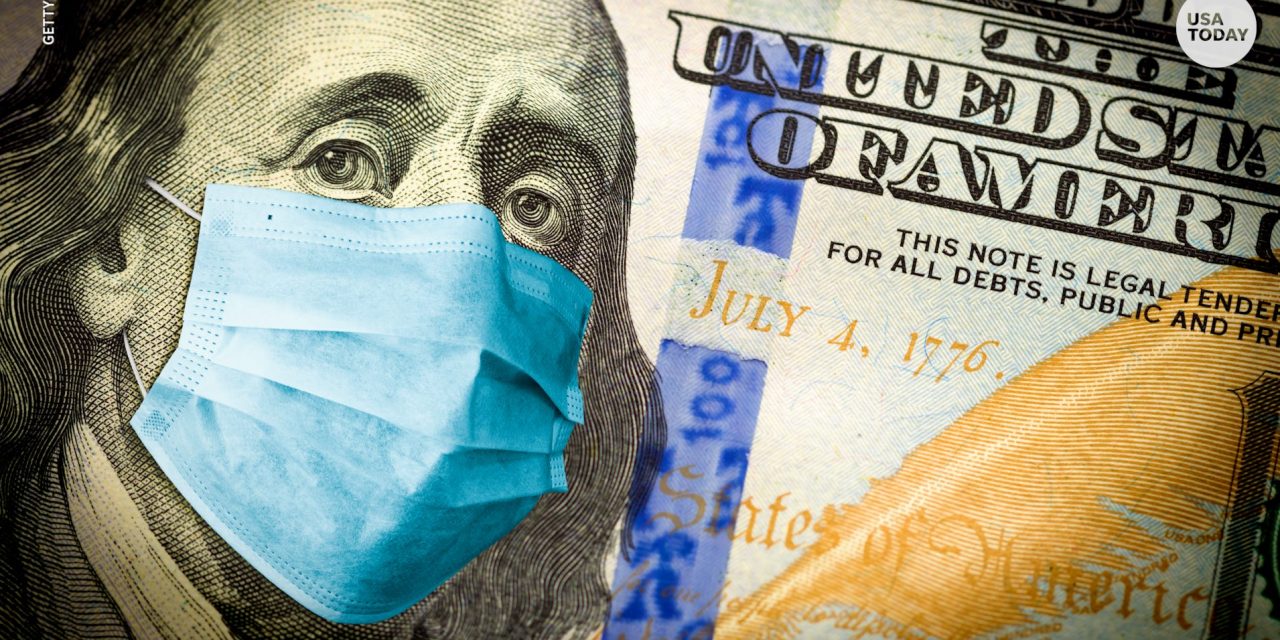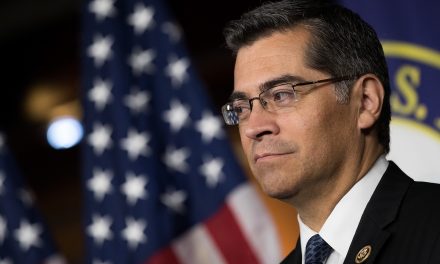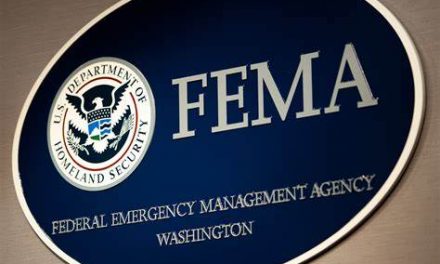Lawmakers late on Sunday released a long-awaited $900 billion coronavirus relief bill that is expected to be passed by Congress on Monday and signed into law by President Trump.
The relief package will be combined with a $1.4 trillion measure to fund federal agencies through the end of September and a package extending expiring tax provisions.
Both Democrats and Republicans touted various aspects of the relief package, though Democrats wanted a significantly larger bill.
Democrats argue that more relief legislation will need to be enacted once President-elect Joe Biden takes office, though Republicans are already resisting that idea. A state and local aid package and liability protections were left out of the agreement.
When Congress approves the legislation it will have appropriated more than $4 trillion to respond to the coronavirus pandemic that has caused more than 300,000 deaths across the country.
Stimulus checks: One of the key elements of the bill is a second round of direct payments to Americans.
The payments will be up to $600 per adult and per child. The amount per adult is half the $1,200 payments that were provided under the CARES Act enacted in March, but the amount per child is slightly larger than the $500 allowed under that law.
The bill will allow U.S. citizens who are in households that also include non-citizens to receive the payments. With the first round of payments, U.S. citizens married to people who do not have work-eligible Social Security numbers generally could not receive a payment if the couple filed a joint return.
A second round of direct payments had not been included in a proposal from a bipartisan group of moderates who had served as a starting point for discussions. But progressive Sen. Bernie Sanders (I-Vt.), GOP Senator Josh Hawley (R-Mo.) and the White House all pushed for the inclusion of more relief checks.
Advocates for more checks are happy to see another direct payment included, but wished it was a higher amount.
Unemployment benefits: Two expiring CARES Act programs, Pandemic Unemployment Assistance, which made benefits available to the self-employed and gig economy workers, and Pandemic Emergency Unemployment Compensation, which provided additional weeks of benefits, were extended for 11 weeks, averting a fiscal crisis for millions of Americans.
That timeline will set another key deadline to stop the programs from expiring in early March. In addition, Congress will add $300 to all weekly unemployment benefits, half the amount that supplemented benefits from April through July. Workers who rely on multiple jobs and have lost income will also be eligible for a weekly $100 boost as well.
Support for small businesses: The popular Paycheck Protection Program, which provided distressed small businesses with forgivable loans to keep them afloat and leave employees on the books, was re-upped with $284 billion in funds.
Businesses that already received a PPP loan will be eligible to get a second one under the new terms. Some of the PPP funds will be set aside for the smallest businesses and community-based lenders.
The deal provides $9 billion in emergency Treasury capital investments for Community Development Financial Institutions (CDFIs) and Minority Depository Institutions (MDIs), financial institutions that largely cater to minorities, as well as an additional $3 billion for CDFIs through a Treasury fund. It also provides $20 billion in Economic Injury Disaster Loans (EIDL) grants for smaller businesses.
Additionally, it includes $15 billion in grants dedicated to live venues.
The expense-deductibility issue was one of the last issues to be resolved before lawmakers and the White House finalized an agreement. Lawmakers on both sides of the aisle argued that they intended for expenses to be tax-deductible in the CARES Act, but Treasury Secretary Steven Mnuchin argued that deductibility would amount to double-dipping because PPP loan forgiveness isn’t considered taxable income.
Housing assistance: The bill extends the eviction moratorium that is set to expire at the end of the year through the end of January.
The legislation includes $25 billion for rental assistance to families facing eviction. It’s the same amount proposed by a compromise $908 billion relief proposal introduced by the bipartisan Problem Solvers Caucus in early December. Eligible renters would be able to receive assistance with rent and utility payments, and bills that have accumulated since the start of the pandemic, by applying with entities that state and local grantees chose to administer the program.
Additionally, the bill includes an enhancement of the Low Income Housing Tax Credit to increase the supply for affordable housing construction.
Education: The bill includes several provisions relating to elementary, secondary and higher education. It would provide $82 billion of funds for schools and colleges to help them reopen classrooms and prevent virus transmission.
It also includes an expansion of Pell Grants. A summary from Senate Minority Leader Charles Schumer (D-N.Y.) and House Speaker Nancy Pelosi (D-Calif.) said that the expansion would allow 500,000 people to become new recipients of the grants and 1.5 million students to get the maximum benefit.
Testing: The agreement includes $20 billion for the purchase of vaccines, $8 billion for vaccine distribution, $20 billion for states to conduct testing and $20 billion in extra federal relief for health-care providers.
Federal Reserve: There is language negotiated by Sen. Pat Toomey (R-Pa.) and Schumer to end the expansion of the Federal Reserve’s lending authority, which Congress enacted through the CARES Act in March.
Toomey on Sunday said the deal will return Fed authority to what it was under Section 13(3) of the Federal Reserve Act before the pandemic struck.
Specifically, new language will close four Fed lending facilities: the Primary Market Corporate Credit Facility, the Secondary Market Corporate Credit Facility, the Main Street Lending Program and the Municipal Credit Facility.
Unspent funding for those programs under the CARES Act will be repurposed.
Toomey agreed to narrow language prohibiting the creation of “similar” programs in the future but he told reporters Sunday the compromise will prevent the creation of “clone” programs.
Nutrition Assistance: The deal directs $13 billion to Supplemental Nutrition Assistance Program (SNAP, formerly known as food stamps), and to child nutrition benefits, the same amount set by the Problem Solvers Caucus earlier this month to pay for a 15 percent increase in SNAP benefits.
The SNAP language does not expand eligibility for the program and requires the secretary of Agriculture to provide reports on participation rates and unspent funding balances.
Transportation: Negotiators provided $45 billion for transportation, including $16 billion for another round of support for airlines, airline employees and contractors, $14 billion for transit systems, $10 billion for highways, $2 billion for intercity buses, $2 billion for airports and $1 billion for Amtrak.
Schumer, speaking on the Senate floor, said the money would keep New York’s Metropolitan Transit Authority running.
Surprise medical bills: The legislation includes provisions to end the practice of surprise medical billing. It would hold patients harmless from surprise bills, including from air ambulance providers and prohibit out-of-network providers from “balance billing” unless they give patients 72-hour notice of their network status and an estimate of the charges.
The bill would allow taxpayers to use their 2019 income for purposes of claiming the earned income tax credit and child tax credit, two credits that benefit low- and middle-income households. This will allow households where people lost jobs or income in 2020 to be eligible for credits or receive larger credits, because the credit amounts phase in with income.
It would boost the tax deductibility of business meals for two years, a priority for Trump.
The provision would also extend and enhance the employee retention tax credit, a payroll tax credit aimed at encouraging businesses to hold on to their workers.
The Hill





